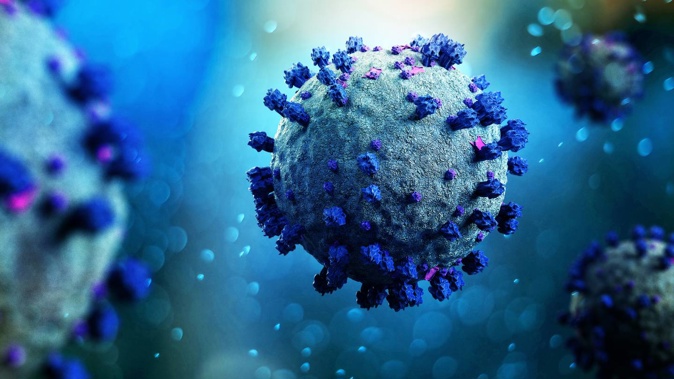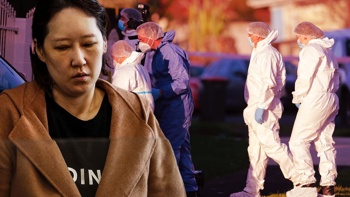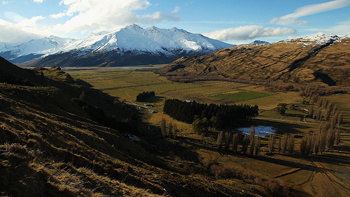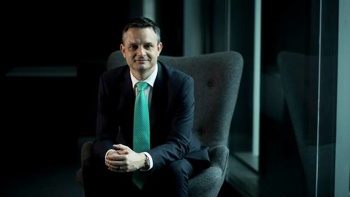
New mutations of Covid-19 - the most contagious yet - are causing the number of infections to explode around the world.
In a World Health Organisation briefing, Director-General Dr Tedros Adhanom Ghebreyesus said the number of cases had jumped by nearly 30 per cent globally in the past two weeks.
The Omicron subvariants BA.4 and BA.5, first detected in South Africa in November last year, are largely responsible for the outbreaks in Europe and the US, where the majority of new cases were logged.
Dr Tedros said a new sub-lineage of BA.2.75 had also been detected in countries like India - a development being closely followed by the WHO.
Case numbers are also surging in New Zealand.
Today there are 13,344 new cases and 587 people in hospital.
This week is the first time case numbers have topped 10,000 since April – but there is no indication the Government will consider switching settings.
The weekly increase – which epidemiologist Professor Michael Baker says is more significant than the daily cases – is also trending upwards.
With the seven-day rolling average of Covid-19 cases being up 2000 cases per day, Baker says New Zealand could be in trouble.
"All the signs point towards a large wave of Covid-19 with an abrupt rise in cases, and it's very distinct, he said."
Covid-19 modeler Dr Michael Plank agrees, telling the Herald it's obvious Aotearoa is facing down a second wave.
"It's clear now that cases are trending upwards and we're at the start of a second wave and that is concerning."
In terms of restrictions, he told the Herald he understands these will always be controversial at this stage in the pandemic.
"I think now is a good time for people to be wearing masks and reminding ourselves of the risk that's out there, and remembering the simple actions we can take – testing, and staying home if you're sick."
Covid Response Minister Ayesha Verrall acknowledges the country is facing increasing cases and with the BA.5 strain another surge, but tweaks to the orange setting were the focus ahead of any move to the red setting.
"We see that we are likely to have that BA.5 come and give us another surge of cases, as we have previously experienced. At the moment, we don't see anything that is changing us away from the current orange setting."
The world is facing a raft of challenges, two-and-a-half years after the novel virus emerged in Wuhan, China.
Testing for Covid has fallen off a cliff around the world and the WHO doesn't have a clear picture of the true number of cases.
New oral antiviral treatments are not reaching low and low-middle income countries, Dr Tedros added.
And as the virus evolves, the effectiveness of vaccines will be reduced.
Dr Tedros said while vaccines were "still really effective at preventing serious disease and death", the protection given by vaccines would wane as new variants emerged.
"Decreasing immunity underscores the importance of boosters, especially for the most at-risk," he said.
Dr Tedros also warned about Long Covid - an umbrella term for a loosely defined grouping of ailments associated with the virus. He cautioned the condition would put an extra burden on health systems, the wider economy and society at large.
He called on people to mitigate the risk of contracting Covid-19 by using "tried and tested public health measures" like wearing masks in public places and staying home if sick.
Cases are also on the rise across the Tasman.
NSW chief health officer Kerry Chant on Tuesday warned: "We are at the start of a third Covid-19 Omicron wave and expect to see a significant rise in cases."
She said the outbreak could peak in July or early August.
"I'm concerned about this picture and I am calling on the community to do a few things to protect yourself and each other," she said, urging residents to ensure they were vaccinated.
"Isolate if you're sick and get tested, wear a mask when indoors and around other people and know if antivirals are recommended from you," Dr Chant said.
"So please wear a mask in indoor areas around other people outside your home, including public transport, pharmacies and shops. Masks, while protecting yourself, can also protect other people."
Queensland is also dealing with a dangerous outbreak, with chief health officer Dr John Gerrard warning the third wave will increase hospitalisations in coming weeks.
"The good news is that up to date vaccination will protect you against severe disease and hospitalisation, and if you are up to date the illness that you will get with this virus is likely to be mild," he said.
Worldwide, more than 550 million cases have been officially recorded and there have been more than 6.3 million deaths attributed to the respiratory disease. The true number is likely much higher.
- by Andrew Backhouse, news.com.au and NZ Herald
Take your Radio, Podcasts and Music with you









